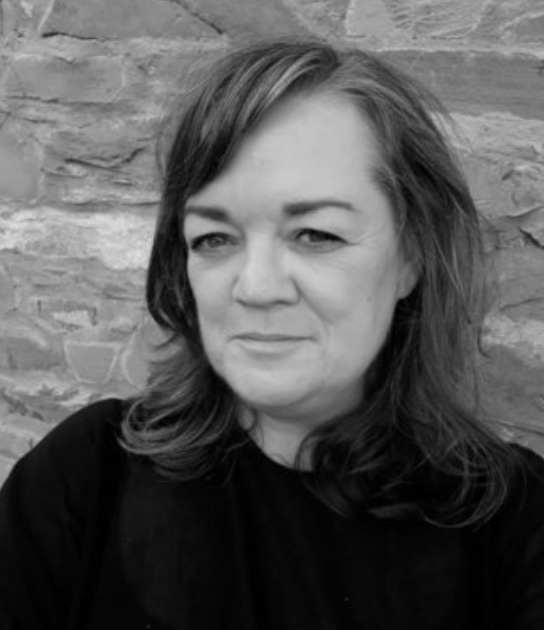The End of the World Is a Cul de Sac
By Louise Kennedy
Riverhead, 304 pages, $27
The oddly titled The End of the World Is A Cul de Sac, a debut collection of short stories by the Irish writer Louise Kennedy, is a contemporary publishing unicorn: a work of extraordinary craftsmanship, written by someone who knows something about life. Kennedy, who is 56, published her first novel, Trespasses, in 2022. Before that, she worked in the restaurant industry for 30 years. She is from Belfast, and her fiction mostly concerns the blue-collar Irish women of her milieu who in her stories mostly don’t work; they are usually mothers and dependent on the men in their lives.
A writer with Kennedy’s background is rare enough in literary publishing, which rewards it-girls and a youth spent in MFA programs. It is even more rare to find one who isn’t catering to the publishing industry’s obsession with narratives of identity and oppression. Kennedy’s protagonists are women, but she says none of the usual things about them. Nonetheless, by the end of the collection, the title—with its bid for the universal—has been earned.
Kennedy writes in a realist vein—another welcome departure from contemporary lit trends. Her stories range in setting from the puff-sleeved 1980s and the Northern Ireland Troubles to contemporary Tunisia, where two friends go on a girls’ weekend. In the title story, a woman has been abandoned in a bankrupt housing estate by her developer husband and falls into a form of addiction with a new man. Whether the relationship will be something new or the last stop on a downward spiral is ambiguous. In other stories, women are menaced by their male partners, or cheated on, or don’t feel loving, or aren’t loved. They are heavily pregnant, or newly pregnant, or are survivors of breast cancer. They are sexually unhappy; they are cheating; they have been poleaxed by desire. One of the few stories in the collection with a male protagonist, “Wolf Point,” portrays a groundsman for a park forced to bring his 5-year-old daughter to work because of his wife’s crippling depression.
The usual interpretation would be that these women are victims, and that someone or something should be blamed—men, or society, or the perils of female embodiment. But from the earliest lines, Kennedy takes unexpected turns, starting with her prose, which is musical and explosive, often incorporating the natural world in startling ways. The opening scene of the title story reveals protagonist Sarah plodding through the destruction of the housing development, where “the dereliction was almost beautiful, the houses dark against the mauve dawn, pools of buff-colored water glinting briefly.” The adjectives are the unusual kind that make us see, even in the moments of beauty, which never last. Sarah has come outside to shoo away a donkey that has wandered into the model home, where “all the doors had been taken” and “clots of dung littered the travertine floor.” Nature pushes through like this everywhere, in descriptions of heather, or a trail branching along a lake, or a mole on a woman’s shoulder “raised and horny, like a woodlouse” that a man fantasizes about touching. A significant proportion of the male characters are involved with the land—they are hunters, fisherman, gamekeepers, gardeners.
Given the focus on nature, it becomes significant that every story is about a sexual, and often fertile, relationship between a man and woman. These days, this is a radical view of the human project, and it makes for thrilling reading. With this focus, Kennedy, a first-rate talent, gets at the crux of her characters’ lives in a few pages like few other writers. One story starts with a photograph of a wife, pregnant with another man’s child, and ends with her death decades later. Her marriage was never right; she was never really happy. All is revealed through the snapshots from a funeral montage. The story set in Tunisia is also about the protagonist’s marriage, which has suffered a perhaps-fatal blow. The woman’s suffering and vulnerability take place in a familiar terrain of text messages, spa treatments, and bouts of drinking. It is pedestrian but excruciating, as daily life so often is.
“What Kennedy shows us is the persistence of nature, stubborn and soiled.”
Kennedy makes such compressed eventfulness look easy. She also traffics in a kind of disorientation that feels particularly original and modern: There is no perspective on anything; no one has any distance from her life; there is a claustrophobic sense of not being able to see out of a trap. And the structure of her stories is unusually clever and inventive; the one based on a funeral montage showcases her particular genius for the details of daily life. As a crowning achievement, the collection builds in tension with each piece, and reaches a thematic climax that feels more like the ending of a novel.
Without revealing too much about the last story, it puts the human fundamentals in the starkest possible light, and comes to a form of conclusion. The reasons for the characters’ struggles aren’t unequal gender relations. The male characters can be abusive or menacing, but they aren’t always. And the women can be vicious things, too—vindictive, withholding, judgmental, cruel. Nor are the reasons the things we usually blame: economics, education, materialism, society. Many of the characters are poor, much of the landscape is befouled. But these factors merely nibble around the edges, influencing the outcomes, but never defining them. Instead, what Kennedy shows us is the persistence of nature, stubborn and soiled. Her characters are driven into cul-de-sacs of flesh; there is nowhere else to go. And if their relationships and circumstances sometimes feel like the end of the world, they are also its beginning. The womb is a cul-de-sac, too.
